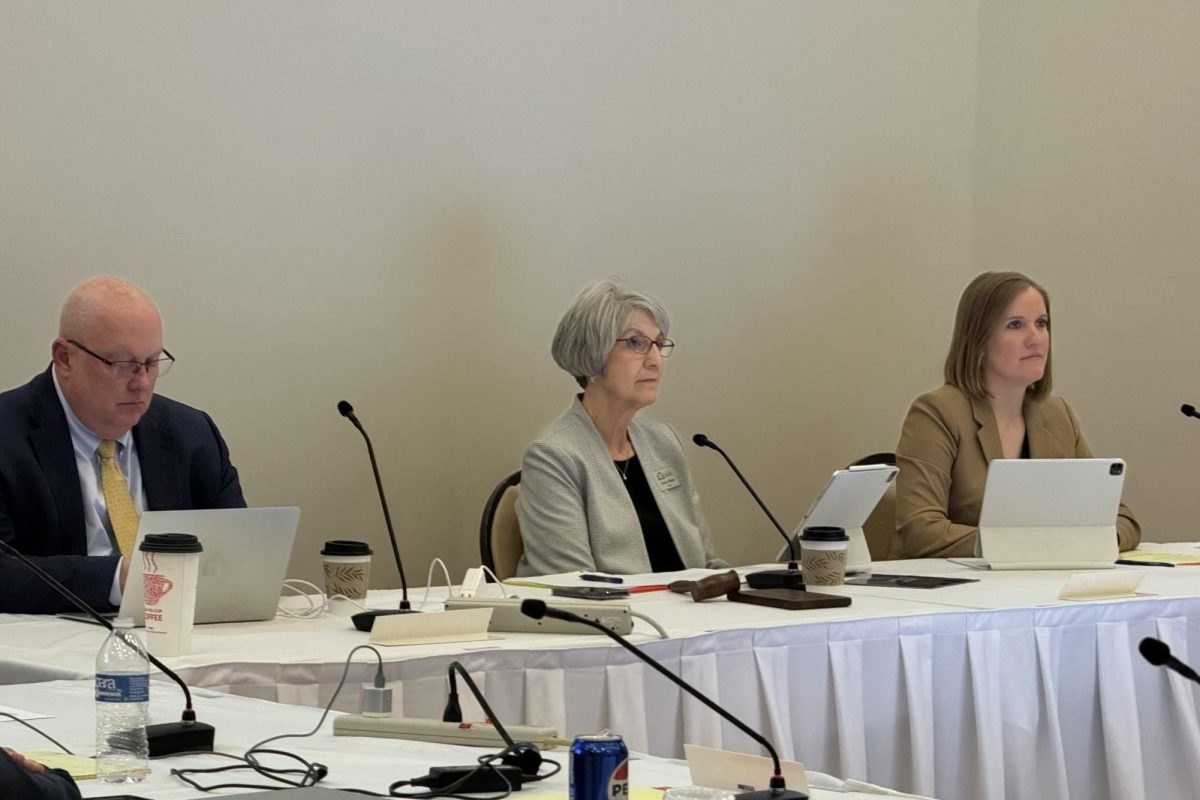Ward: Recycling is our responsibility
April 24, 2015
We’re told we should treat our bodies like a temple because we only have one body to live in. And from the large number of students who flock to State Gym every day, it looks like, as college students, we’re doing our best to heed this advice. Because it is true; this body we have right now is going to be the only one we get. However, this exact idea is the reason I don’t understand why we don’t take better care of the other item of which we only get one: this planet.
You would think that because this mentality seems to be so widespread about our bodies, it wouldn’t be hard to transfer over to something that is much more permanent than we are. After all, once our bodies are gone, the Earth will still exist, so we have no business hurting it while we’re here. And thus we have arrived to the whole point of that little speech: why are we not being more careful with our home when it would be just as easy to help it as it is to hurt it?
America is an incredibly blessed country in that we have access to so much. Virtually anything we could possibly need or want is right here for us to have, which I think is part of our problem. We have gotten so used to the idea that we will take until we don’t need it anymore. The leftovers are just tossed off, out of our lives, and we think nothing of it. For example, we buy a soda, drink the contents and then chuck the bottle into the nearest garbage can because it is no longer of use to us. But the reality is, that bottle is actually quite useful and if recycled, could be used to make more bottles that thus contain more soda. The recycled plastic could also be used to make other plastic items, but for the sake of my visual we’re going with bottles, you get the idea. When you get down to the numbers, Americans throw away 2.5 million plastic bottles every hour.
But, this doesn’t usually happen. In 2012, 251 million tons of trash were generated in the United States and only 87 percent of that trash was recycled, which equals out to about a 34.5 percent recycling rate. That is terrible. Especially when we have access to facilities that enable recycling.
For one easy example, I’m from Clive, Iowa, and the Metro Waste Authority has provided my city, as well as numerous other cities around the Des Moines area, with recycling bins right at our own homes. And my area isn’t the only one that has access to this convenience. According to DoSomething.org, 87 percent of Americans have access to this type of recycling program. The bins literally sit right there just waiting to be used to help the Earth. Yet somehow, we have managed to keep our recycling levels pitifully low.
To bring our focus back up here to Cyclone country, Ames also has a recycling program that takes your trash and recycles at least 75 percent of it for you at the Recourse Recovery Plant and uses it for energy around the city. Specifically here on campus, there are also places that we could be using more to help reduce the amount of waste we are contributing. In the residence hall in which I live this year, we have been provided with different recycling bins for various recyclables right on our floor, yet rarely do I see them being used and I just don’t get it. The university isn’t even making us walk more than outside our dorm room door to help fight pollution, yet we can’t even make it that far?
Perhaps having all of this recycling information constantly thrown at us over the years has gotten kind of monotonous and frankly, old news, but there is one example that we must turn our attention to in order to truly see what our lack of caring about where our garbage goes, has created.
Fellow Cyclones, I would like to introduce you to the garbage patch, and yes, it’s exactly what it sounds like. In the North Pacific Ocean, there is a swirling conglomeration of garbage, mostly plastics, that just exists there because we couldn’t be bothered to go put it in the recycling bin. This garbage patch can be several meters thick, making it nearly impossible to figure out the actual size of this mess, which in turn makes it infinitely more difficult to clean up.
As if the idea of having our waste contaminating the ocean wasn’t enough, we are also endangering the marine life that either eats the plastics because they can’t get to any real food or the animals get trapped within the swirling abyss and die.
This is our fault. There’s no way to pass the blame or pretend it isn’t there. The problem is there and nothing can be done about it until we decide to start treating our planet like a temple instead of a wasteland.

















